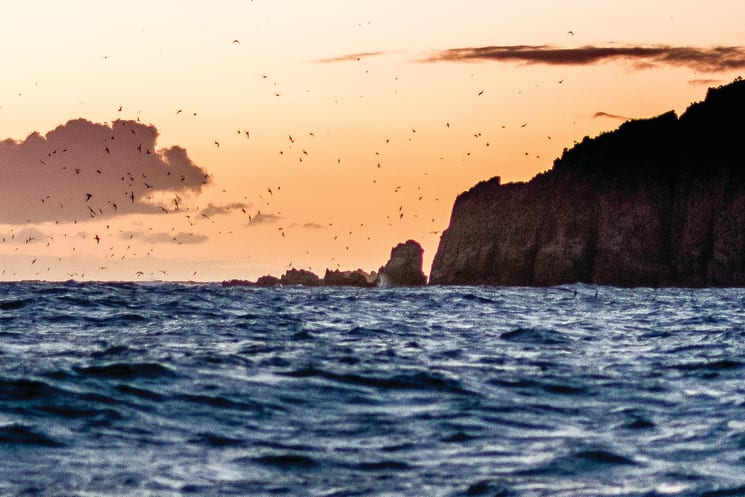
Annually, approximately 1.4 million birds live across the island. Phillip Island Nature Parks has just released its first Short tailed Shearwater Report, focused on the research, rescue and community impact on these migratory birds.
Phillip Island Nature Parks has released the first Short tailed Shearwater Report, focused on the research, rescue and community impact on these migratory birds.
The report outlines the progress and commitment towards protecting the shearwaters.
During 2023, highlights for this program included:
- The ’Dark Sky so Shearwaters Fly’ campaign exceeded expectation, reaching over 450,000 people via media coverage. This was double the reach of 2022 (225,500).
- 31 local businesses within the birds’ flight path signed up for the campaign to turn off their lights.
- Lights on the bridge switched off over seven nights as part of the Dark Sky campaign.
- The third highest breeding participation rate since the program began in 2010. Of those eggs, 80 per cent hatched.
- A total of 419 birds were rescued from roads and hotspots, with two euthanised due to extensive injuries.
- There were 237 birds found dead on the roads due to collisions with vehicles.
- Hotspots for live rescues – Cape Woolamai, Penguin Parade.
- Over 50 per cent of dead birds came from Forrest Caves and the start of The Esplanade at Surf Beach.
“We are proud to showcase the incredible efforts that have led to us understanding how we can live with this species on Phillip Island and strengthen our conservation actions for future survival,” said a Nature Parks spokesperson.
Annually, approximately 1.4 million birds live in colonies found predominantly along Summerland Peninsula, Cape Woolamai and the southern coastline of the island.
Each breeding pair lays one egg (late November), which hatched in January.
In late March/early April the parents depart for the Northern Hemisphere leaving their young chicks.
In late April or early May, the young adults then take off on their first migration north. As the young birds learn to fly, the greatest risk is the fledglings are attracted to artificial light, with many becoming prey or road casualties.
The report says, “efforts to reduce light pollution and improve traffic management aim to mitigate the harmful impact of artificial lights on shearwaters”.
“The new roundabouts on the Phillip Island Road, the Penguin Parade masts, and the Penguin Parade Visitor Centre have all been designed to minimise the disruption caused by artificial lights on penguins, shearwaters, and the overall wildlife that resides on the island.”
Nature Parks said in 2024 they hope to increase the number of local businesses who turn off their lights as part of the “Dark Sky so Shearwaters Fly” campaign, as well as encouraging local residents in the flight path to turn off outside lights.





